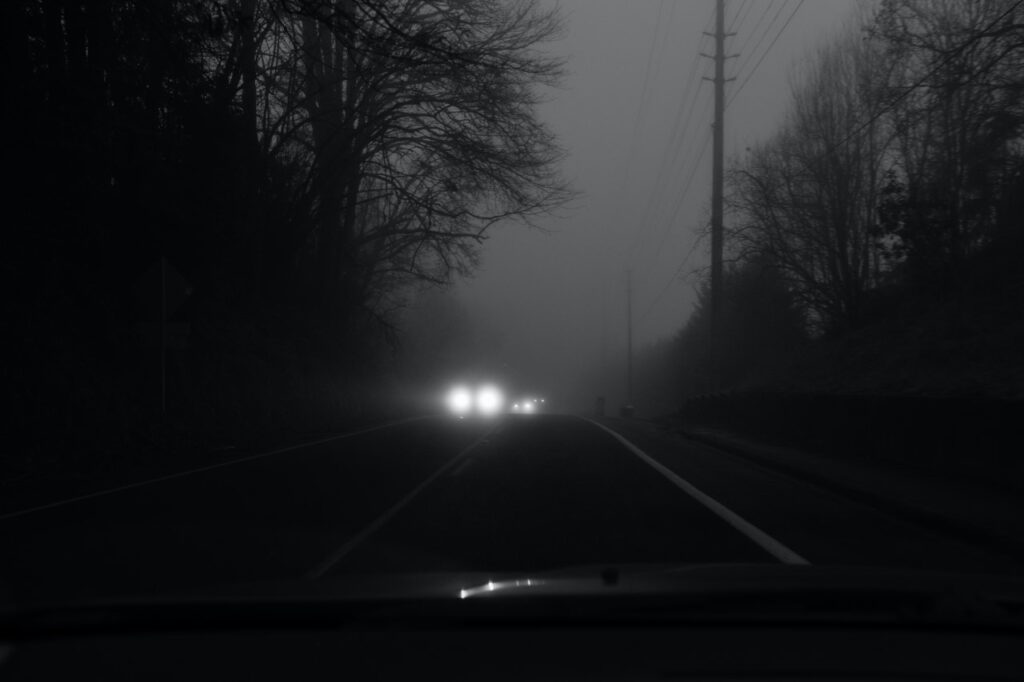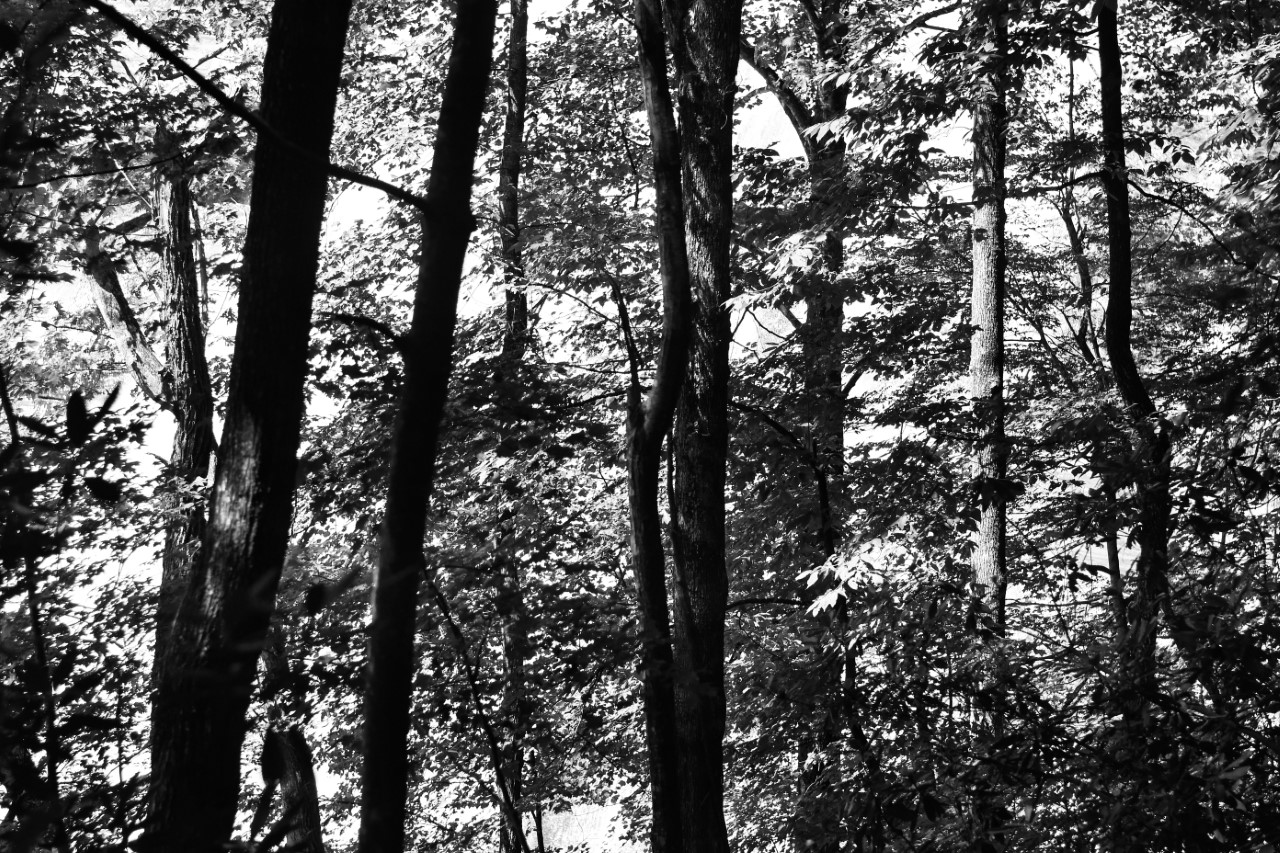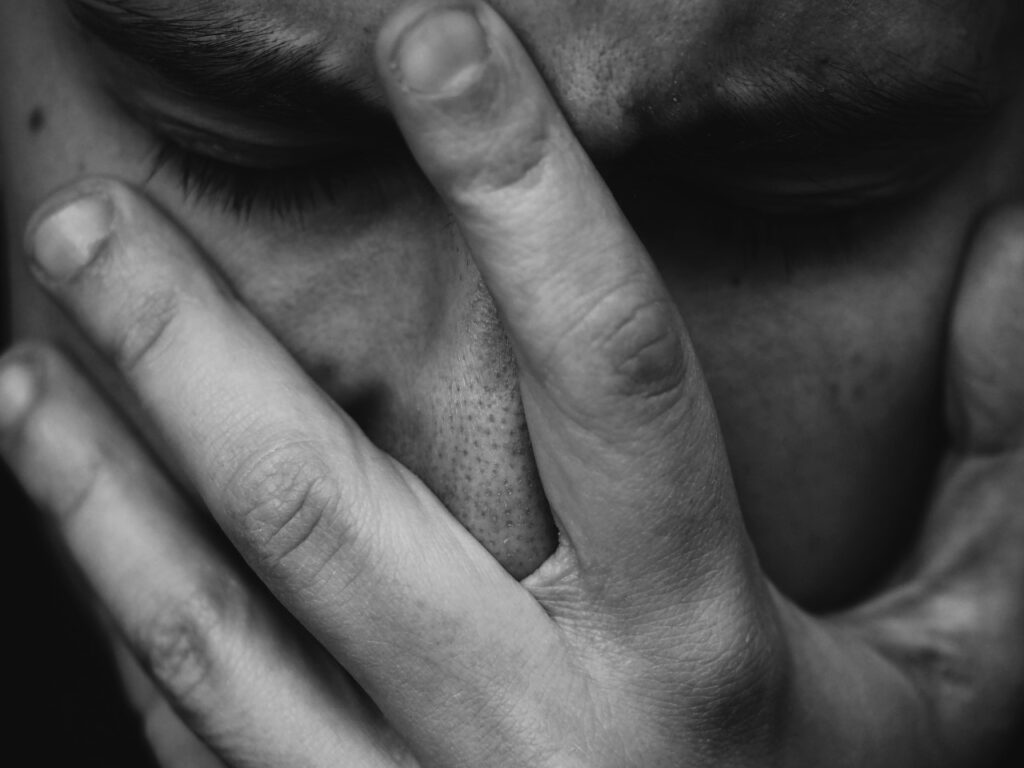A prose piece by DAWID MOBOLAJI.
I’m here. One long-haul flight and four hours of driving later – of meandering through unpaved roads and sprawling fields. This is the dead end of the world, the place I pledged to never revisit. I stand tired at the threshold of the house. Its roof is low; it looked like an ancient burial mound from afar, a swollen mole hill.
I’m here because of the headaches – they began when I was twenty-four years old. I had just started a big, important job in the city. Trust me, it doesn’t matter which city – London, New York, Hong Kong, take your pick. They’re all as polluted and as cruel as each other.
My affliction – this pain – mainly came at night, at least in the beginning. I would keel over, roll into a foetal ball at the foot of my bed. Sometimes my limbs went weak, or I lost sight for several hours. One time, I couldn’t speak for nine days.
The doctors cast their nets wide at first – stress, lack of sleep, nutritional deficiencies – then became more bold and scientific in their estimations – cluster headaches, complicated migraines, trigeminal neuralgia. But none of these verdicts were a comfortable fit, and no scan or blood test proved illuminating. At times, they let me stay in the emergency department, blessing me with an oxygen mask, connecting me to infusions. That only blunted the attack. It wasn’t infrequently that I begged the attending doctor to inject some lethal compound into the bag.
One family gathering, feeling truly half-dead, I told an aunt who was visiting the country. Her face froze into a mask as she listened to my symptoms. She scribbled the address on a piece of paper and promptly left. She seemed rattled. A few days later, a handwritten letter came in the post – a set of instructions. Reportedly, returning home was my only hope for remission.

I wait now in front of the house. A woman approaches – a member of the community. There is a relative out there who links us, perhaps closer than I realise. Genealogical certainty dissolves in these parts, along with all other faces of our predictable reality.
She greets me in a dry, official tone. Over the years, I decided to forget this language, annulled its status as my mother tongue. I pass her the handwritten letter from my aunt. The writing fills me with dread, conjures some clunky sounds in my head. Peppered with overdots and tails, strokes and accent marks, it turns simple letters into something runic and unknowable. She hands me the keys and I step forward – into the flat shelter hugging the surface of the earth.
The rooms are innumerable, clustered, small. It’s impossible to see more than a metre or two into the property. There’s a strange abundance of light – it worms its way in despite the sparsity of windows, like a persistent gas. I set my trunk on a frayed armchair. A stack of empty tins shine in the corner like a clump of mushrooms. The labels are ripped off, the insides lined with brown, gelatinous clots. I deepen my breaths to get used to the mildew – I let the spores invade my lungs. I work my way into the house in what feels like concentric rings, drilling deeper as I wander, grazing my knuckles on the yellowed wallpaper.
Things seem smaller – that’s normal. But what about all the details I’d completely forgotten? Not just nooks and crannies, unexpected handles and stray ornaments, but entire doors, entire rooms. In this chimera of the familiar and unfamiliar, I find my childhood bedroom – this is where I sleep.
It’s not possible to say at which point, at the threshold of which dream, I begin sleepwalking. I step out of the house, into the woods. When the headache comes in a dream, it has unprecedented effect. The surrounding trees lose their margins; their barks take on colours I’d never seen before. A shimmering trail appears at my feet, like a venule flowing through the soil. I follow this streamlet – for hours, for days, for weeks – who knows? Is this a remedy my aunt had in mind?
When I wake, I’m kneeling among dewy toadstools and leaves of fir. It’s still night. I dig my fingers into moss, its spongy flesh – I peel it back like a curtain. I discover the mouth of a moist, black pocket in the ground – a canal gently diving into the earth. Inside – aggregates of shining pearls, the whites of eyes. The bodies, pulsating and breathing, lie deposited like fossils. I know then: my great-great-great grandmothers, my great-great-great grandfathers. One of the ancestral arms reaches into the neck of the cave. It pulls me in, complete and all-encompassing.
The rip in the moss closes over, like a healed cut.
Featured image source: unsplash.com






